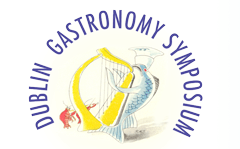Start Date
28-5-2024 11:15 AM
End Date
28-5-2024 11:30 AM
Description
Cuisine offers various lenses through which to analyse culture and how identities and experiences are shaped within and between communities that coexist in the same city. Istanbul is a unique city that has been home to countless cultures throughout history and served as the capital of three empires. This rich historical background has given rise to a cosmopolitan culinary culture. The Ottoman Empire played a significant role in shaping the local culinary culture, which was further enriched by the interaction and cultural exchange of the societies that lived together under its auspices. Alongside the food traditions of Muslim Ottomans, Istanbul's cuisine was also influenced by the contributions of minority groups such as the Istanbul Greeks (Rums), Istanbul Armenians, and Turkish Sephardics. This makes Istanbul's cuisine the only cuisine in the world with the most diverse, multi-ethnic, multireligious, and wealthiest structure. This paper delves into the culinary cultures of three specific non-Muslim minority groups, namely Rums, Istanbul Armenians, and Turkish Sephardics, and their influence on Istanbul's cuisine. These minority groups were selected for various reasons, including their historical background and socio-economic, cultural, and religious factors that impacted their contribution to Istanbul's cuisine. Furthermore, these groups were selected based on their different circumstances and how their paths intersected in Istanbul. Despite their unique backgrounds and ethnicities, these communities have lived together for centuries and shared a food culture shaped by available food sources. Therefore, Istanbul's cuisine is not just the cuisine of a city but a refined culinary culture created by the interaction of different communities over the centuries and the transfer of their food knowledge.
Creative Commons License

This work is licensed under a Creative Commons Attribution-NonCommercial-Share Alike 4.0 International License.
Minority Cuisines of İstanbul and Their Contribution to Formation of İstanbul Cuisine
Cuisine offers various lenses through which to analyse culture and how identities and experiences are shaped within and between communities that coexist in the same city. Istanbul is a unique city that has been home to countless cultures throughout history and served as the capital of three empires. This rich historical background has given rise to a cosmopolitan culinary culture. The Ottoman Empire played a significant role in shaping the local culinary culture, which was further enriched by the interaction and cultural exchange of the societies that lived together under its auspices. Alongside the food traditions of Muslim Ottomans, Istanbul's cuisine was also influenced by the contributions of minority groups such as the Istanbul Greeks (Rums), Istanbul Armenians, and Turkish Sephardics. This makes Istanbul's cuisine the only cuisine in the world with the most diverse, multi-ethnic, multireligious, and wealthiest structure. This paper delves into the culinary cultures of three specific non-Muslim minority groups, namely Rums, Istanbul Armenians, and Turkish Sephardics, and their influence on Istanbul's cuisine. These minority groups were selected for various reasons, including their historical background and socio-economic, cultural, and religious factors that impacted their contribution to Istanbul's cuisine. Furthermore, these groups were selected based on their different circumstances and how their paths intersected in Istanbul. Despite their unique backgrounds and ethnicities, these communities have lived together for centuries and shared a food culture shaped by available food sources. Therefore, Istanbul's cuisine is not just the cuisine of a city but a refined culinary culture created by the interaction of different communities over the centuries and the transfer of their food knowledge.
